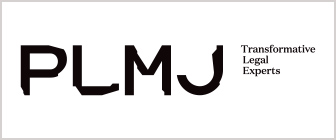The recent decision of the Court of Justice of the European Union (‘CJEU’) in case C-656/211, challenges the Stamp Tax liability applicable to marketing fees (and management fees including marketing services) paid by collective investment undertakings to management companies or financial entities (e.g., banks, credit institutions, etc.).
Based on this decision, we outline below the background of the matter and the potential opportunities that may now be available to collective investment undertakings.
- Background
Based on the Portuguese tax legislation, financial operations carried out by or with the intermediation of credit institutions, financial companies or other entities legally equivalent to them and any other financial institutions (on the amount charged), including the payment of commissions and consideration for financial services, are subject to Stamp Tax at a rate of 4%.
Accordingly, the management fees charged to collective investment undertakings have, since 2019 (with the revocation of the Stamp Tax exemption applied to commissions charged to investment funds), been subject to Stamp Tax at a rate of 4%.
With the end of the said Stamp Tax exemption, several taxpayers have requested further clarifications from the Portuguese Tax Authority, as they considered that the incidence of Stamp Tax on this type of management fee (or part thereof) may result in the breach, among others, of Directive 2008/7/EC of 12 February 2008, on indirect taxes on the raising of capital ('Directive').
We recall that the Directive was adopted to harmonise the legislation on indirect taxes on the raising of capital in order to eliminate factors which may distort conditions of competition or hinder the free movement of capital in the European Union.
After the matter was presented before the Portuguese Court of Arbitration (CAAD), the matter was submitted to the appreciation of the CJEU, requesting an answer to the following questions:
i. Does the Directive preclude Portuguese legislation under which Stamp Tax should be levied on commissions charged by banks to open-ended securities investment fund management companies for gaining new subscriptions for shares, that is, for obtaining new inflows of capital for the investment funds in the form of new subscription for units by the funds?
ii. Does the Directive preclude Portuguese legislation under which Stamp Tax should be levied on the management fees charged to open-ended securities investment funds by management companies, in so far as those management fees include the fees which the banks charge the fund management companies for the above activity?
Accordingly, the CJEU considered that the Stamp Tax charge on: i) marketing fees charged by banks to management companies of undertakings for collective investment which allowed the new capital contributions to be raised; and ii) management fees charged by management companies to undertakings for collective investment, in the part that incorporates the value of the marketing fee, falls within the scope of the prohibitions laid down in the Directive.
According to the CJEU, Stamp Tax should not be levied on the part of the commission paid in relation to the marketing services, as this operation is related to operations of issue and putting into circulation of participation units/shares and should therefore be considered an integral part of an overall transaction with regard to the raising of capital.
Therefore, by considering the services provided by financial institutions to be an integral part of a capital-raising transaction, the CJEU has determined that the levying of Stamp Tax on that remuneration is contrary to the Directive.
The CJEU adds that the effectiveness of that provision would be compromised if Stamp Tax were also levied on the remuneration that the management company receives from funds in so far as those amounts include the remuneration paid by the management company to financial institutions in respect of the marketing services.
- I am a collective investment undertaking: what should I do?
Based on the above, we consider that Stamp Tax should not be levied on remuneration of marketing services (marketing fees or management fees reflecting such marketing fees), charged by investment fund management companies or financial entities when they are materially linked to services aimed at raising capital.
This decision deals in greater detail with commissions for the payment of marketing services supplied by banks to investment fund management companies and the re-invoicing of the cost of the same service by such management companies to investment funds. However, we consider that its scope should be broader and cover all commissions relating to remunerations for raising of capital - which is not limited to commissions for the marketing of participation units or shares.
This said, we believe that this decision creates a potential opportunity, upon the revocation of the Stamp Tax exemption, to recover the Stamp Tax assessed on those fees since 2019. Therefore, it is important to determine from the outset which of the amounts previously paid relate to the raising of capital, in order to calculate the amount of Stamp Tax unduly paid.
In practical terms, a case-by-case analysis should be carried out in order to (i) identify potential services relating to the raising of capital that where subject to Stamp Tax; and (ii) determine which percentage of the charged management fee relates to the raising of capital, since this portion should not be subject to Stamp Tax.
** * **
Lisbon, 13 February 2023
PLMJ Advogados S.P., R.L.
André Areias, Senior Associate2
João Filipe Rodrigues, Associate
1 Pease see: https://curia.europa.eu/juris/document/document.jsf;jsessionid=B326F37DE3D4BB32EBE8431CCA5DB8F4?text=&docid=268796&pageIndex=0&doclang=EN&mode=lst&dir=&occ=first&part=1&cid=1723387
2 The authors would like to give special thanks to Andreia Macedo (trainee layer at PLMJ) for her contribution to the research on this topic.


